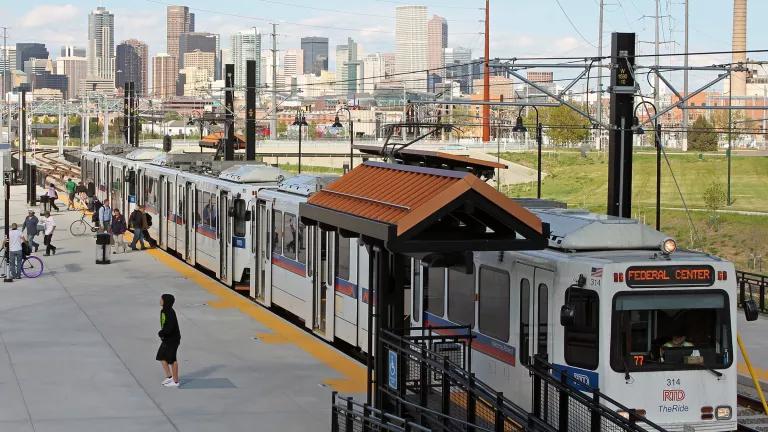It Takes a Village: Hariyali Clean Energy Solutions in India

Co-authored with Madhura Joshi and Marie McNamara
Indian villagers celebrated Kamala Harris during her swearing-in as the United States first female vice president. In many ways this moment exemplifies opportunity for continued women’s leadership, especially in rural villages. India’s villages present a major opportunity for green economic recovery. With pilots underway, Hariyali Green Village Plans shows that women-led programs can transform village energy use in India by making clean energy available and affordable while improving livelihoods.
To understand energy access needs at the village-level and spur clean energy transitions, NRDC and our partner, the Self-Employed Women’s Association, are implementing the Hariyali Green Villages initiative. The partners organized a virtual roundtable featuring implementing agencies, industry experts, financiers, and key stakeholders to discuss how these clean energy plans can be scaled up to hundreds of villages across India.
At the roundtable, NRDC and SEWA also released a new report It Takes A Village: Advancing Hariyali Clean Energy Solutions in Rural India, that presents in-depth research and implementable solutions to help promote clean energy transitions in Indian villages.
“It Takes A Village: Advancing Hariyali Solutions” launched at the webinar presents the survey results and details specific interventions that can help accelerate the uptake of clean energy solutions. The Green Village Energy Plans outlined policy, financial, and social frameworks to promote broader clean energy adoption and livelihood gains.
Some of the key recommendations highlighted in the report include:
- Lighting: expand LED bulbs, solar lamps, and voltage stabilizers: Incentives to use LED bulbs through sales in common service centers at fair prices will help save energy and costs. Skill development at the local level is also needed to provide local maintenance support and voltage stabilizers can help sustain broader appliance adoption.
- Cooling: increase efficient fans and cool roofs: Efficient fans can reduce electricity expenses and provide better indoor cooling and circulation. Passive cooling measures, such as cool roofs, can also help improve indoor thermal comfort and reduce household cooling requirements.
- Irrigation: community-owned solar water pumps and micro-irrigation: Solar irrigation pumps increase agricultural productivity, and joint ownership models can reduce energy expenses. Micro-irrigation technologies and improved water-use efficiency are also key opportunities.
- Household Cooking: explore cleaner cooking options and solar appliances: Biogas is a potential cleaner cooking option as well as liquefied petroleum gas (LPG). While there are barriers to wide-scale adoption of LPG, improving LPG cylinders' financial viability and usability would help promote broader village use. Solar milk chillers, solar flour mills, and solar oil mills also present cleaner cooking options.
- Community Intervention: engage schools & health centers in clean energy transitions: Clean energy interventions in community spaces can serve as demonstration sites for the village to expand clean energy adoption.

For clean energy transitions to take root, reliable energy supply and efficient appliances must meet specific village needs. Tailored policies, financial incentives, and implementation systems are needed to ensure solutions match the local context.
Access to reliable and affordable clean energy can improve livelihoods, alleviate poverty, and leads to emissions reductions and reduced dependence on fossil fuels. Families in rural India are keen to embrace clean energy and improve their livelihoods, as demonstrated by the women-led Hariyali Green Village initiative. Interventions that focus on inclusivity and community participation can help spur clean energy transitions across rural villages – especially in the face of multiple crisis facing the world – COVID-19, economic despair, and the climate crisis.

Madhura Joshi is a clean energy expert based in New Delhi working as a consultant with NRDC; Marie McNamara is a Duke Stanback NRDC fellow,



